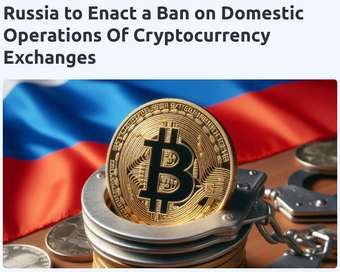
KEYTAKEAWAYS
- Cryptocurrency emerged from a broader cypherpunk movement advocating for various technological freedoms. Consider these wider implications when engaging in crypto politics.
- A politician's current crypto-friendly stance doesn't guarantee future support. Examine their views on related issues and their overall vision for technological development.
- Be wary of authoritarian "crypto-friendly" rhetoric. Support politicians whose motivations align with a comprehensive vision for technological, political, and economic development in the 21st century.

- KEY TAKEAWAYS
- INTRODUCTION
- CRYPTO: BEYOND TOKENS AND BLOCKCHAINS
- THE IMPORTANCE OF OTHER TECHNOLOGICAL FREEDOMS
- CRYPTO AND INTERNATIONALISM
- THE CHANGING LANDSCAPE OF CRYPTO-FRIENDLY POLITICS
- DECENTRALIZATION VS. ACCELERATION: DIVERGENCE OF GOALS
- THE MEANING OF “CRYPTO-FRIENDLY” TO AUTHORITARIANS
- CONCLUSION
- DISCLAIMER
- WRITER’S INTRO
CONTENT
Explore the risks of single-issue crypto politics and the importance of considering broader technological freedoms. Learn why supporting politicians solely based on their crypto stance may be counterproductive.
INTRODUCTION
In recent years, cryptocurrency has become an increasingly significant topic in political discourse. Various jurisdictions worldwide are considering different legislative approaches to regulate blockchain activities. Notable examples include the European Union’s Markets in Crypto-Assets (MiCA) regulation, the United Kingdom’s efforts to regulate stablecoins, and the United States Securities and Exchange Commission’s (SEC) complex legislative and enforcement attempts.
While many of these proposed regulations appear reasonable, there are concerns about potential extreme measures. These could include classifying almost all tokens as securities or banning self-custodial wallets. Such concerns have led many cryptocurrency professionals to actively engage in politics, often basing their support solely on a party or candidate’s stance on cryptocurrency.
This article argues against this narrow approach, highlighting the risks involved in such single-issue decision-making. This strategy may ultimately contradict the initial motivations and values that drew individuals into the cryptocurrency space.
CRYPTO: BEYOND TOKENS AND BLOCKCHAINS
In the cryptocurrency world, there’s a tendency to overemphasize the importance of “money” and the freedom to hold and use tokens, viewing it as the most critical political issue. While this is indeed a crucial battle, it’s essential to remember that cryptocurrency emerged from a broader spirit of technological libertarianism advocated by the cypherpunk movement.
The cypherpunk movement aimed to universally protect and enhance individual freedoms through free and open technology. In the early 2000s, the main focus was on combating restrictive copyright legislation pushed by corporate lobbying organizations. The primary tools in this battle were torrent networks, encryption, and internet anonymization techniques.
Bitcoin was conceived as an extension of this spirit in the realm of internet payments. It was viewed as a way to organize compensation for artists’ work without relying on restrictive copyright laws. The author shares a personal anecdote from 2011, where they developed a mechanism for Bitcoin Weekly to release articles based on reaching specific BTC donation thresholds.
THE IMPORTANCE OF OTHER TECHNOLOGICAL FREEDOMS
While financial freedom is crucial, there are several other technological freedoms that are equally “fundamental”:
- Freedom and privacy of communication: This includes encrypted messaging and pseudonymity. Applications supporting zero-knowledge proofs are particularly important as they can protect pseudonymity while ensuring important authenticity claims.
- Privacy-friendly digital identity freedom: While there are some blockchain applications in this area, particularly in allowing revocation and decentralized “proof of negatives,” the use of hashes, signatures, and zero-knowledge proofs is often more frequent.
- Freedom and privacy of thought: This will become increasingly important in the coming decades as more of our activities are mediated by AI interactions in deeper ways.
- Access to high-quality information: Social technologies can help people form high-quality opinions in adversarial environments. The author personally favors prediction markets and community notes.
These are just the technological aspects of freedom. The goals that motivate people to build and participate in blockchain applications often have impacts beyond technology.
CRYPTO AND INTERNATIONALISM
Internationalism has always been a social and political cause highly valued by many cypherpunks. Cryptocurrency extends these ideals to the realm of money and economic interactions, potentially significantly promoting balanced global economic development.
The author argues that if one cares about cryptocurrency because of its benefits to internationalism, then one should also judge politicians and their policies based on their concern for the external world. Many fail this standard.
THE CHANGING LANDSCAPE OF CRYPTO-FRIENDLY POLITICS
It’s crucial to remember that a politician who is crypto-friendly now may not remain so in five years. The author suggests looking at their views on related topics from five years ago, such as encrypted messaging. It’s particularly useful to find a topic where “supporting freedom” and “supporting corporations” didn’t align; the copyright wars of the 2000s are cited as a good example.
DECENTRALIZATION VS. ACCELERATION: DIVERGENCE OF GOALS
A potential point of divergence is when the goals of decentralization and acceleration conflict. Regulation is typically detrimental to both decentralization and acceleration. However, these goals sometimes diverge, as we’re seeing in the AI field. The author conducted a series of polls last year, mainly asking people which they valued more in the context of AI. The results showed a clear preference for decentralization.

THE MEANING OF “CRYPTO-FRIENDLY” TO AUTHORITARIANS
There’s a common style of “crypto-friendly” rhetoric among authoritarian governments that’s worth being wary of. The author cites modern Russia as the best example, where the government’s recent policies on cryptocurrency are simple:
- When we use cryptocurrency, it helps us avoid others’ restrictions, so it’s good.
- When you use cryptocurrency, it makes it harder for us to restrict or surveil you, so it’s bad.


CONCLUSION
When a politician supports cryptocurrency, the key question is: Are their motivations right? Do they have a vision for 21st-century technological, political, and economic development that aligns with yours? Do they have a positive vision that goes beyond short-term interests?
If so, that’s great: you should support them and make it clear that this is why you’re supporting them. If not, then either stay out entirely or look for more suitable allies. By doing so, you can help create more honorable incentives, whether you’re someone preparing to donate millions of dollars, influence millions of Twitter followers, or just an ordinary person.
Original Source: Vitalik Buterin’s website
















